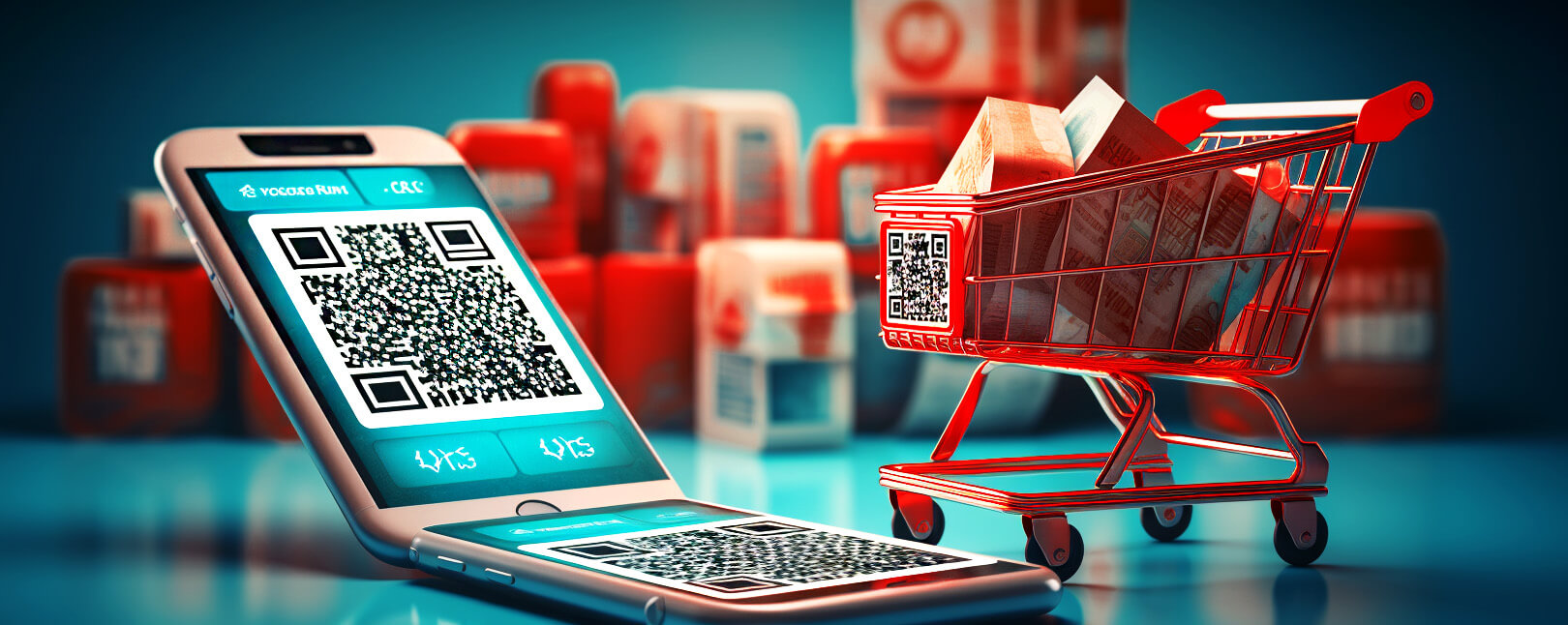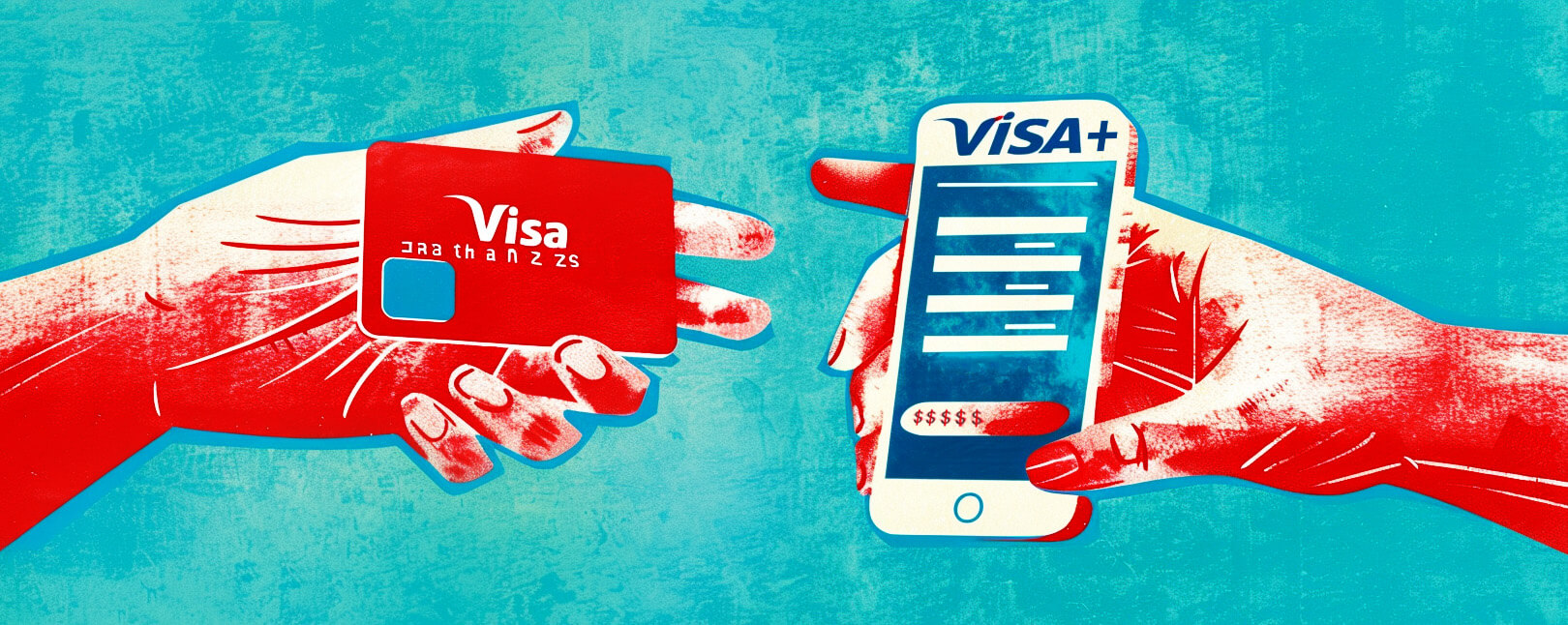The Pros & Cons of Alipay for Global Consumers & Merchants
Alipay, a mobile payment app associated with Chinese megaretailer Alibaba, has gained significant popularity in its home country. It's easy to see why; all things considered, it's very similar to the services offered by PayPal or Venmo here in the US.
The app is user-friendly, making it a breeze for people to send money to friends or pay for items. It's straightforward for merchants as well. What really sets Alipay apart, however, is its enormous user base. With over a billion users globally, Alipay far outnumbers PayPal's 300 million global users.
Whether you're sharing the cost of dinner or buying something online, Alipay has made itself a convenient choice for many. So, what makes it so popular? Also, what should you know before trying it out?
Recommended reading
- How to Use a Contactless ATM & Where to Find Enabled Devices
- Terminal ID Number (TID): What is it? What Does it Do?
- What is EMV Bypass Cloning? Are Chip Cards Still Secure?
- Dispute Apple Pay Transaction: How Does The Process Work?
- Visa+: Get the Most Out of Digital Wallets With This Tool
- Mastercard Installments: How Mastercard BNPL Works
What is Alipay?
- Alipay
Alipay functions as both a digital wallet and a payment app, enabling users to transfer money from person to person, or to businesses.
[noun]/al • ē • pā/In simple terms, Alipay is a mobile payment app. Beyond its primary feature, though, Alipay is a multifaceted tool that can be used for a variety of services, from hailing cabs to securing credit cards and even purchasing insurance.
Being a part of the Alibaba Group, Alipay collaborates with a multitude of financial entities, predominantly those issuing Chinese debit and credit cards like UnionPay. However, it also works with international names like Mastercard and Visa.
If you've ever used Venmo, Zelle, or PayPal, the concept of Alipay won't be new to you. It's among the rising stars of payment apps that have quickly carved out a significant market share in China, as well as other parts of Asia including Malaysia and Singapore. And, the app continues to gain traction globally.
With its staggering global user base of over a billion people, it's an obvious choice for anyone looking to navigate international payments efficiently.
How Does Alipay Work?
Alipay operates through a mobile wallet feature that customers can use for a wide range of transactions. Whether they're buying from your business or receiving funds from someone else, the wallet serves as a one-stop solution.
Brick-and-mortar transactions are facilitated using QR code payments. Either the customer scans your business's code, or you scan it on their mobile device to complete the payment. However, the app can also be selected as an option at checkout with participating merchants, just like Apple Pay or Google Pay.
Instead of immediate transfers, Alipay employs an escrow system to hold funds until both parties confirm they're satisfied with the transaction. This means the recipient usually receives the funds within a time frame ranging from 1 hour to 4 business days.
This added layer of security and verification makes Alipay an attractive choice for users. Payments are only released and deposited into the recipient's account once both sides have confirmed they are content with the transaction.
Yes. Alipay allows hundreds of US companies to do business with Chinese customers, whether they're stateside or in China itself. In the States, you'll find Alipay accepted stores including CVS, Walgreens, Sephora, and even hotel chains such as Hilton and Marriott.
Who Can Use Alipay?
Alipay was originally designed to cater to Chinese residents and businesses. However, it has since expanded its offerings to include short-term tourists in China, as well as customers in select markets.
If you plan to visit China for up to three months, Alipay offers a convenient solution for handling payments through its 90-day Tour Card feature (formerly Tour Pass, introduced in 2019).
The Tour Card allows travelers in China to use Alipay's wallet feature without needing a Chinese bank account. In these cases, there are two primary routes for using Alipay. First, you can link an international card to your Alipay account. Currently, Alipay accepts cards from Visa, Mastercard, JCB, Discover, Diners Club, and UnionPay. Another option is to use a mini-app called TourCard to load funds onto Alipay.
Be aware that you can only use Alipay as a tourist for 90 days. To use the app for more than 90 days, you'll need to set up a Chinese bank account.
Is Alipay Secure?
Yes. Alipay is widely regarded as a safe digital payment platform.
Alipay is operated by Ant Group, an offshoot of the Alibaba Group in China. As one of the world's leading mobile payment platforms, Alipay integrates multiple security measures, like data encryption and SSL protocols, to protect users' information.
Here's a look at some typical security features you'll find in trustworthy digital payment services like Alipay:
That said, it's crucial for users to remain vigilant, just as they would with any digital platform. This means not sharing sensitive data, employing robust passwords, and steering clear of public Wi-Fi when executing transactions.
Also, remember that Alipay may be subject to Chinese legal jurisdiction. This could be a point of concern for some users.
“Pros” of Using Alipay
Alipay holds a commanding position in the Chinese market, capturing a significant share of consumer preferences. While it reigns dominant, other mobile payment options are also familiar names in Chinese households. Take Alpiay’s main rival, WeChat Pay, for example.
Alipay and WeChat Pay have simplified transactions with other popular mobile wallets, making them smooth and hassle-free for consumers. Users enjoy:
- Convenience: Alipay is not just a payment app; it's an all-in-one financial ecosystem. Whether you're splitting bills, hailing a taxi, or paying utility bills, Alipay makes these transactions seamless and efficient.
- Wide Acceptance: Particularly in China, the ubiquity of Alipay means you can make transactions at nearly every vendor, both online and in person.
- User Experience: Designed with users in mind, Alipay's interface is intuitive, and it even provides an English language option to cater to international users.
- Safety & Security: Alipay is committed to keeping user data and transactions secure using a robust security infrastructure. This includes data encryption, two-factor authentication, and facial recognition.
- Quick Transfers: The app facilitates instant transfers between friends and family, usually requiring a QR code scan or a phone number.
- Additional Services: Alipay goes beyond basic transactions. The tool offers financial services that include investment opportunities, insurance options, and credit assessments.
- International Use: Alipay's global footprint is expanding, making it an increasingly convenient option for international travelers through features like "Tour Pass."
- No Fees for Most Transactions: Alipay does not charge fees for most domestic transactions, although certain specialized or international transactions may incur charges.
“Cons” of Using Alipay
Of course, like any technology, these platforms have some drawbacks. These should be be taken into account before using Alipay or WeChat Pay:
- Not FDIC Insured: Bank accounts in the US are insured by the Federal Deposit Insurance Corporation (FDIC) for up to $250,000. Alipay accounts, however, are not FDIC insured. If the platform fails for whatever reason, there is no government insurance to protect your funds.
- Limited Functionality Outside China: Alipay's comprehensive range of services is only fully accessible on an ongoing basis to those with a Chinese bank account.
- Foreign Transaction Limitations: Users with international cards may face restrictions on available features and may incur additional fees.
- Privacy Concerns: As a Chinese platform, Alipay is subject to Chinese data regulations, which may include government access to user data.
- Merchant Scams: Scams and fraudulent activities are risks in any financial ecosystem, and Alipay is no exception.
- Language Barrier: While there's an English version of the app, some features may only be accessible in Chinese, limiting utility for non-Chinese speakers.
- Customer Service & Support: Depending on your needs and language skills, customer service might not meet the standard expected by international users.
- Exchange Rate & Fees: International travelers using Alipay may be subject to unfavorable currency exchange rates and fees. This can make Alipay transactions costlier than other payment methods.
Alipay provides a remarkable level of ease and a wide range of services, making it an attractive option, particularly for those living in or traveling to China. Yet, it's not without its limitations. This lack of a financial safety net might be a concern for those used to the protections commonly available in other nations.
How Can Cardholders Get Set Up With Alipay?
Creating an Alipay account is usually a straightforward process, although the specific steps may differ based on your geographic location and the kind of card you're using—be it a local Chinese bank card or an international one.
Here are a few basic steps for getting started with Alipay:
Download the App
1. Download the Alipay app: The app is available on Android and iOS platforms. You can download it from the Google Play Store or the Apple App Store.
2. Choose Language: After installing the app, you may be prompted to select your preferred language. Alipay does offer an English-language option.
Registration & Verification
3. Sign Up: Open the app and look for the "Sign Up" or "Register" option. You will typically need to provide a phone number and a password.
4. SMS Verification: You'll receive an SMS code for verification after entering your phone number. Enter this code into the app to proceed.
5. Personal Details and ID Verification: You may be required to provide additional personal details, including your full name and identification documents (i.e. a passport).
Linking a Bank Card
6. Go to My Cards: Once you're signed in, look for the "My Cards" section or its equivalent within the app.
7. Add a Card: Follow the app's instructions to add your bank card details. This usually requires you to input your card number, cardholder name, expiration date, and CVV code. If you're using an international card, be aware that you may have limited functionality.
8. Verification: Alipay may require a secondary step to verify the bank card. This could be an SMS code sent to the phone number linked to the bank card or a small, temporary charge to the account you'll need to verify.
Additional Steps
9. Set a Payment Password: You may be prompted to set up a six-digit payment password. This is separate from your login password and will be used to confirm transactions.
10. Enable Face or Fingerprint Recognition: Some versions of the Alipay app allow you to use biometric data for added security.
11. Additional Verification: Additional verification steps may be required depending on your country or the type of transactions you intend to make.
Test the Account
12. Conduct a Small Transaction: Once everything is set up, consider making a small transaction to confirm everything works as expected.
13. Check for Fees: Especially for international cards, be aware that you may be charged foreign transaction fees or experience currency exchange rate fluctuations.
Alipay's features may be somewhat restricted for international users or those who lack a Chinese bank account. The platform has been expanding options for global users, such as introducing the Tour Card (above) for tourists in China. However, complete access to all functionalities generally hinges on having a bank account in one of the markets in which Alipay natively operates. Since rules and app functionalities can evolve, it's always best to consult the most up-to-date information for the most accurate and current guidance.
Pros & Cons of Accepting Alipay Payments for Merchants
Aiming to extend your business footprint in China? Or, to elevate the payment experience for your existing Chinese clientele? If so, integrating Alipay into your payment options can be essential.
As China's primary payment solution, Alipay caters to a myriad of needs, from online shopping and daily groceries to paying for taxis and takeout food. The platform processes millions of transactions every single day due to its extensive reach.
There are other benefits to consider as well, including:
- Robust Security Measures: Alipay employs multiple features, including data encryption, to ensure transactions are secure and customer information remains confidential.
- Fewer Chargebacks: Alipay's unique settlement mechanism bypasses conventional chargeback processes. While customers can still secure payment reversals, your business won't suffer from a surge in chargebacks.
- Safety & Convenience: Using a mobile wallet like Alipay is often deemed safer than carrying a physical credit card. Many consumers find Alipay to be exceptionally convenient.
- Enhanced Customer Experience: Offering popular payment options can attract more customers, reduce cart abandonment, and improve overall customer satisfaction.
That said, here are some cons you should consider before accepting Alipay payments, too. Remember to take these into account before you begin the setup process:
- AlipayHK vs. Alipay China: AlipayHK is limited to transfers within AlipayHK accounts. It doesn't support transfers to Alipay China accounts.
- Lack of FDIC Insurance: Alipay's funds aren't FDIC-insured, meaning funds cannot be recovered in the event of company dissolution. However, as a merchant, frequent transfers to your bank account can mitigate this risk.
- Targeted Customer Base: Alipay mainly serves Chinese residents and travelers in China. Therefore, incorporating Alipay would be most beneficial if you have a strong Chinese customer base, or cater to travelers.
- Regional Laws & Fees: Operating as a Chinese entity, Alipay is governed by specific local laws and regulations. Being aware of these rules is essential for smooth business transactions.
By adding Alipay to your payment options, you're offering a familiar and comfortable way for customers to transact, potentially drawing in new clientele, boosting sales, and ultimately enhancing your bottom line.
How US Merchants Can Accept Alipay: 5 Easy Steps
US merchants interested in accepting Alipay payments have several options available to them. The process often involves integrating Alipay into their existing point-of-sale (POS) system or using a dedicated terminal or mobile application specifically designed for Alipay transactions.
Here are a few general steps:
#1 | Understand Why You Need Alipay
Before integrating Alipay, make sure you understand your target audience. If your business caters to Chinese tourists, students, expatriates, or Asia-Pacific travelers, accepting Alipay can be a significant advantage because it is one of the region’s most widely used payment methods.
#2 | Contact Alipay or a Service Provider
You can directly contact Alipay to become an official merchant. This often involves a detailed process, including documentation and compliance checks. Another option is to use a third-party provider; some companies offer integrated solutions for merchants to accept multiple payment methods. Examples include Stripe, Adyen, and Worldpay.
#3 | Technical Integration
There are a few ways in which you can technologically integrate into the Alipay ecosystem:
- QR Codes: One common way to accept Alipay is via QR code payments. The merchant generates a QR code for the transaction, which the customer scans using the Alipay app on their smartphone to complete the payment.
- API Integration: Alipay’s API can be integrated into the website's checkout process for online merchants. This typically requires a development effort.
- POS Integration: Some POS systems have built-in support for Alipay. Check with your POS provider to see if this is an option.
- Dedicated Terminals: Some service providers offer dedicated terminals to process Alipay payments.
#4 | Compliance & Documentation
You’ll likely need to provide business documentation and go through a compliance check by Alipay or the third-party provider. You need to ensure that you comply with local and international financial regulations.
#5 | Testing
Once the technical integration is complete, thorough testing is usually recommended to ensure the payment process runs smoothly. After successful testing, you can start accepting payments through Alipay.
Be aware that transaction fees will apply, either from Alipay itself or the third-party provider. Also, please note that as regulations and technologies evolve, the details of integrating Alipay may change. Consulting directly with Alipay or qualified third-party service providers is a good idea for the most accurate and current information.
FAQs
What is Alipay and how does it work?
Alipay is a digital payment platform and mobile wallet primarily used in China for transactions ranging from online shopping to in-store purchases. Users can link their bank accounts or credit cards to the Alipay app, allowing them to pay for goods and services by scanning QR codes or tapping their phones at NFC-enabled terminals. The app offers additional features like bill payments, ticket bookings, and peer-to-peer money transfers.
Can you use Alipay in USA?
Yes. You can use Alipay in the US at certain merchants that accept it, particularly those that cater to Chinese tourists or have a large Chinese customer base. The app works in a similar way to how it operates in China; users scan a QR code to complete a transaction. However, its acceptance is not as widespread in the US as it is in China.
Is Alipay the same as PayPal?
Alipay and PayPal are digital payment platforms that allow users to make online transactions, pay for goods and services, and transfer money between accounts. While PayPal is widely used internationally and is more prevalent in Western countries, Alipay dominates the Chinese market and offers additional services like utility bill payments and taxi bookings. Unlike PayPal, Alipay is deeply integrated into the Chinese ecosystem and is less commonly accepted for transactions outside of China.
Who accepts Alipay in the US?
A multitude of companies accept Alipay, ranging from retail chains like CVS, Walgreens, and Target to luxury brands like Sephora and Ulta. Major hotel chains, including Hilton, Hyatt, and Marriott International, also welcome Alipay payments. Additionally, online merchants using Shopify's platform and sellers on Alibaba's marketplaces support Alipay transactions.
Can you use Alipay without a Chinese bank account?
The Alipay Tour Card allows travelers in China to utilize Alipay's eWallet without needing a Chinese bank account. In these cases, there are two primary routes for using Alipay. You can either link an international card to your Alipay account or use a mini-app called TourCard to load funds onto Alipay. Or link an international card to your Alipay account. Currently, Alipay accepts cards from Visa, Mastercard, JCB, Discover, Diners Club, and UnionPay.
How do I pay using Alipay?
To make a payment through Alipay, you can scan the merchant's QR code with the Alipay app or have the merchant scan your app's QR code. Once the QR code is scanned, you confirm the payment amount and authorize the transaction, usually via fingerprint or a password.














